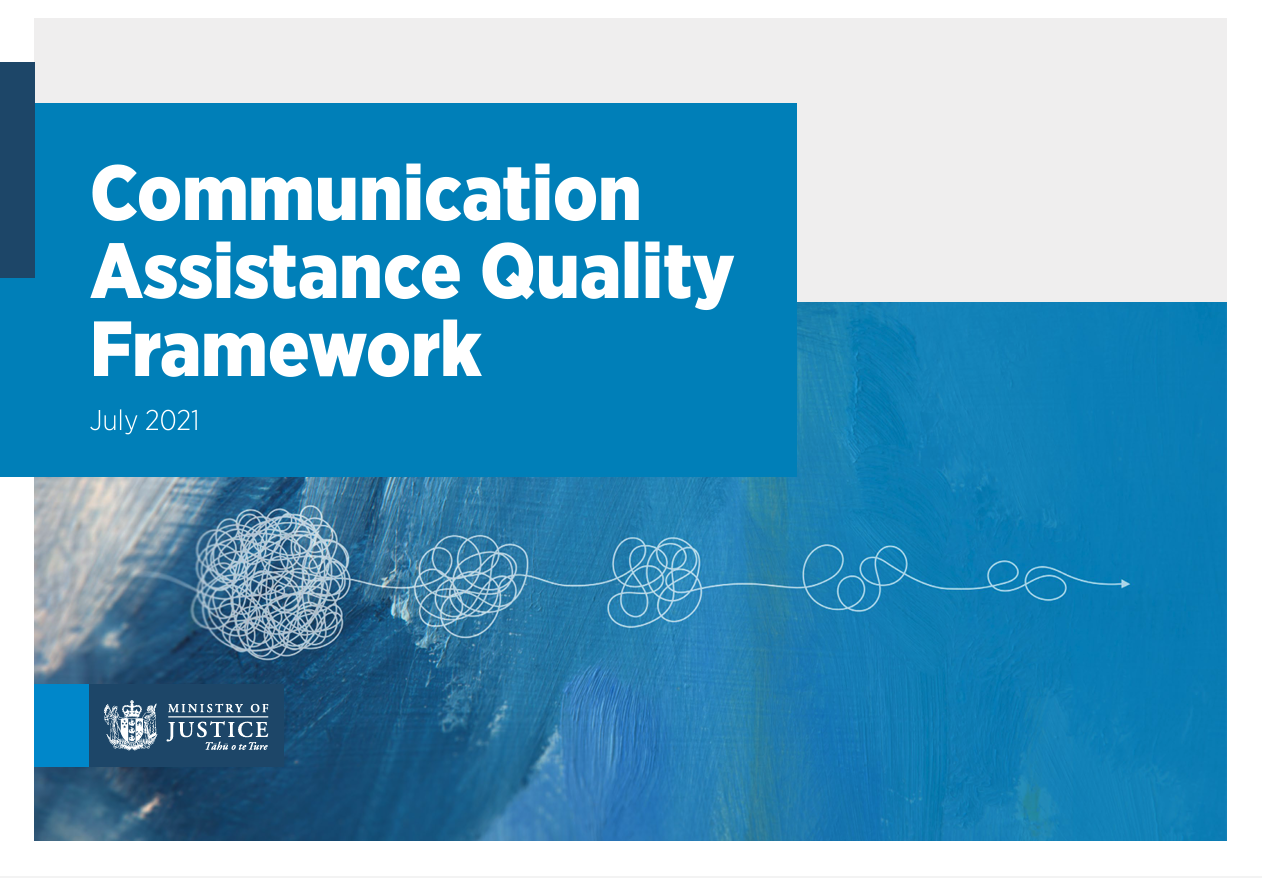
Professionals we work with
We believe everyone is entitled to receive communication assistance.
Communication Assistants (CAs) provide specialised support to participants in legal settings through assessments and tailored communication strategies. They help apply accommodations that address specific communication needs.
As independent officers of the court, CAs maintain a neutral role. They are not witnesses or support people but are sworn in to ensure that communication remains fair and comprehensive. This role helps prevent misunderstandings and ensures that justice and social service procedures are conducted inclusively.
Communication assistants adhere to the Communication Assistance Quality framework to guide their professional practice.

Engaging with a Communication Assistant (CA) involves several key steps to ensure effective support and collaboration. This includes: identifying who may require a CA, making an application, working with the CA to complete an assessment, pre-trial/hearing support, within trials and hearings and post hearings and trials. By following these steps, you can effectively collaborate with a CA to enhance communication and ensure fair and inclusive participation in legal proceedings.
CAs are appointed under s80 of the Evidence Act 2006, which entitles defendants in criminal proceedings and witnesses in civil or criminal proceedings to “communication assistance”, broadly defined in s4 of the same Act as “oral or written interpretation of a language, written assistance, technological assistance, and any other assistance that enables or facilitates communication” with a person with a communication impairment.
The first step is always a targeted specialist assessment of the person’s communication skills and abilities. The CA report outlines difficulties in how the person will function in the communication demands of justice contexts and what accommodations are needed to be put in place. This report is aimed at “what all can do to help” versus a diagnostic report.
Then as the process moves forward, for example, in a matter involving a complainant with a mild intellectual disability, a CA will work with Lawyers to provide support by simplifying language/questions, using visual aids, and offering immediate assistance during evidence at trial. This helped the complainant give clear and complete evidence, reducing frustration and anxiety and ensuring the flow of evidence.
CAs in New Zealand can also assist with the facilitation of communication between a defendant with communication difficulties to understand the process, charges, and evidence and give instructions to their lawyer both pre-trial and at trial. A CA has skills in breaking down the language including using pre-prepared plain language (Easy-read) documentation and live visual aids to assist in real time.
CAs also assist in Family Group Conferences (FGCs) under the Oranga Tamariki Act, ensuring meaningful engagement for all participants. They create supportive environments, simplify complex information, and work closely with professionals for clear communication.
By working collaboratively with CA’s professionals can be more confident that the participant is engaged and participating fully in proceedings. Access to Justice is enhanced.

We believe everyone is entitled to receive communication assistance.

Explore our FAQs below to learn more about how Moretalk can help.